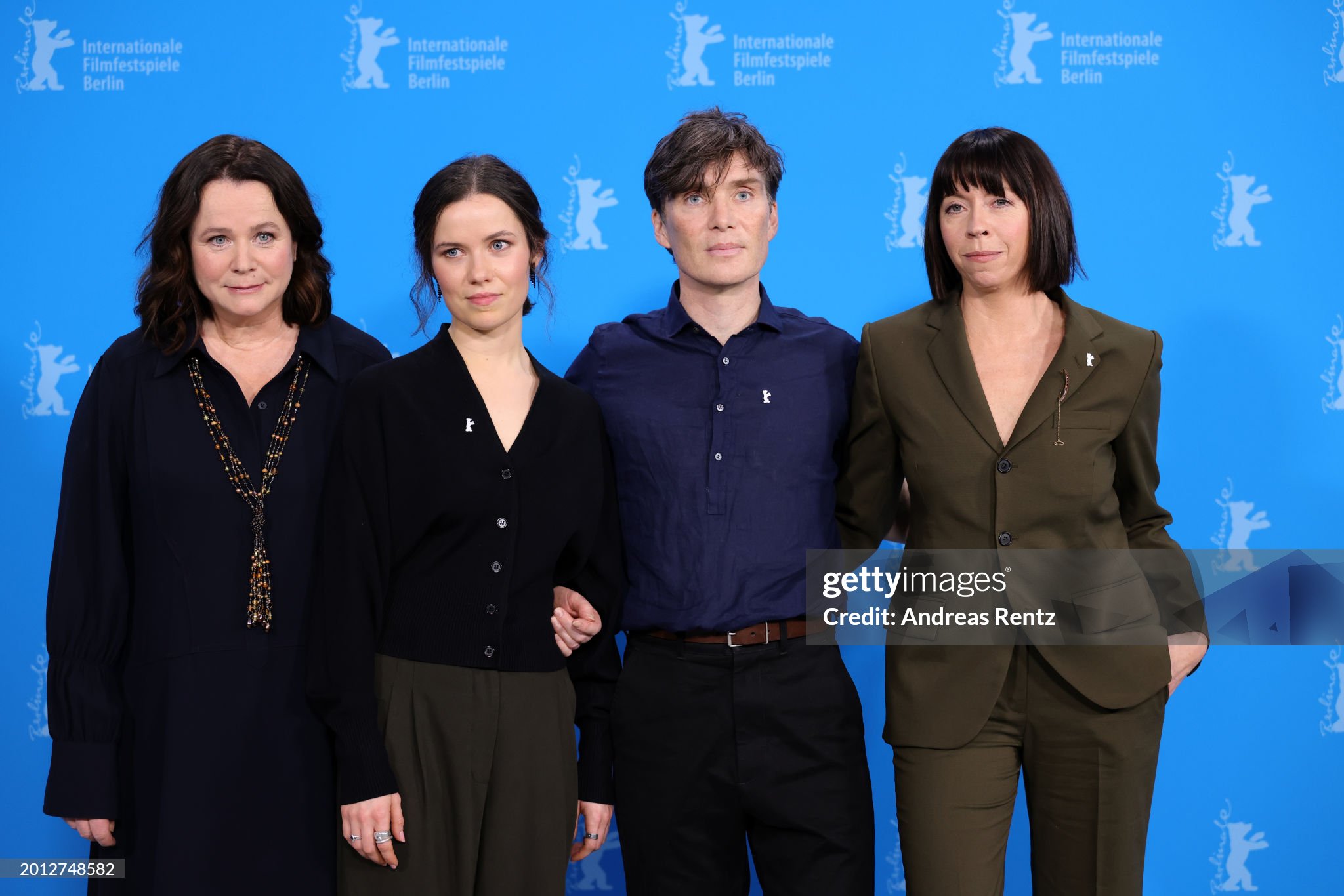As I settled into my seat, the enchanting aura of the cinema surrounded me once again. Excitement bubbled within as I prepared to dive into my first Berlinale movie of the year. All I know so far is that the story unfolds in Ireland, and it holds the prestigious position of being the opening film for this year’s Berlinale.
With a literature background, my heart always warms up to films adapted from novels. Small Things Like These, directed by Tim Mielants, takes its inspiration from Claire Keegan’s novel of the same name, a proud recipient of the Orwell Prize in 2022.
Another one of Claire Keegan’s novels came to life on the big screen at Berlinale 2022 – The Quiet Girl. In contrast to The Quiet Girl, the Belgian director’s film doesn’t showcase the scenic beauty of the Irish countryside. Set during Christmas, the atmosphere is chilly and snowy, painting a starkly different seasonal backdrop.
Nonetheless, watching both movies reveals intriguing similarities. In this latest venture, Cillian Murphy, Best Actor Oscar nominee for the blockbuster Oppenheimer and one of the main producers, takes on the role of a Quiet Man.
Cillian Murphy immerses himself in the role of Bill Furlong, a coal merchant and family man. His character uncovers disturbing abuse at a local convent, forcing him to confront childhood trauma. He doesn’t say much, but it doesn’t mean that he will be silent about what he sees.
What sets Bill Furlong apart is his departure from the typical father figure seen in fiction and film. He exudes sensitivity and tenderness, caring deeply for his community. Despite his traditionally masculine occupation, there’s a feminine touch to his character that struck me. He is also hardworking. the name Furlong means “furrow length” — the distance a team of oxen could plow without resting.
Set against the backdrop of the historical Magdalene Laundries, where pregnant unmarried girls were sent, the film exposes the grim reality of these institutions run by the Catholic Church in Ireland. Supposedly intended for employment and education, they became places of confinement for an estimated 30,000 Irish women between the 18th and 20th centuries.
In the story, Furlong’s mother gave birth to him out of wedlock at the age of 16. While she easily could have ended up in the laundry, fate smiled upon them as Bill and his mom found refuge with Mrs. Wilson, a compassionate Protestant widow.
This background forms a profound connection for Bill to the plight of these girls, society’s outcasts whom nobody wants. Additionally, he grapples with the awareness of his own illegitimate status, perceived as such by the judgmental inhabitants of the town.
The scenes with mountains of coal and Bill gaining social acceptance as a hardworking man gives a Dickensian feeling to the film. To the point that we can see Small Things Like These as a feminist revision of Charles Dickens’ A Christmas Carol.
Dickens employs his narrative to confront the imbalances in wealth distribution in Victorian society and critique the materialistic elements of Christmas. The film vividly portrays these themes, particularly evident in the scene featuring Eileen, Bill’s middle-class wife, emphasizing the significance of material possessions like shoes.

BERLIN, GERMANY – FEBRUARY 15: Emily Watson, Zara Devlin, Cillian Murphy and Eileen Walsh pose at the “Small Things Like These” photocall during the 74th Berlinale International Film Festival Berlin at Grand Hyatt Hotel on February 15, 2024 in Berlin, Germany. (Photo by Andreas Rentz/Getty Images)
Emily Watson skillfully embodies the all-powerful and intimidating character of Sister Mary. The atmosphere carries a Mafia-esque undertone, and the tea scene is truly captivating. As a nun serving tea accidentally drops a spoon, Sister Mary deftly utilizes silence to amplify the tension in the moment, showcasing her adeptness at playing the game of control. An illustration of her strategic approach is evident in her sending a generous amount of money as a Christmas gift to Eileen, ensuring a warm and delightful Christmas dinner.
About 10 minutes into the film, I wondered about the time period. Later, I learned that deliberately avoiding a specific year, like 1985, was a smart choice. This ambiguity allows the story to transcend time and place, emphasizing the powerful role of art in aiding a nation’s healing after trauma.
Upon exiting the cinema, my thoughts linger on the ending. There’s a sense of relief that Bill was able to rescue the girl. However, questions arise about the fate of the other girls and Bill’s family. Will his daughters be able to attend St. Margaret’s, the reputable Catholic school for girls in New Ross? Or will they face the possibility of relocation? The uncertainty about the characters’ futures adds a layer of intrigue to the conclusion.
The closure of the Magdalen laundries in 1996 and the Irish government’s apology to the victims in 2013 poignantly illustrate the protracted timeline justice often follows. This incident serves as a stark example of the challenges faced by girls worldwide, making the film a relevant and timely commentary on contemporary issues.
